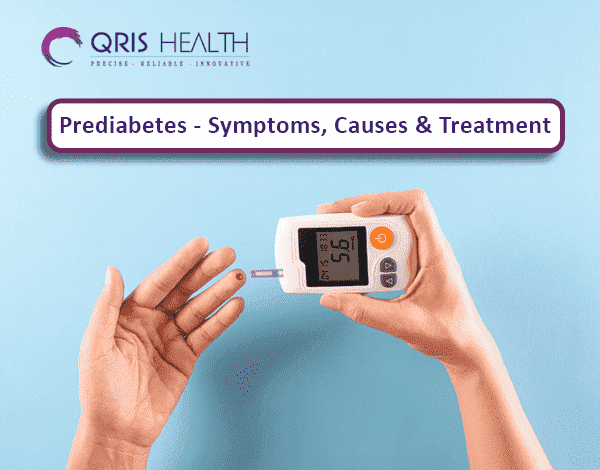Imagine a machine running smoothly with well-oiled joints like it’s delivering fuel (glucose) to your cells for energy. In this case, insulin is used as a key to open cell doors and allow glucose through so that cells can be fed. However, there are times when this intricate system fails hence causing insulin resistance.
What is Insulin Resistance?
Insulin resistance occurs when the cells in your body become less sensitive to the actions of insulin. This means that despite the presence of insulin produced by your pancreas, the effectiveness on tissues reduces which results in elevated glucose levels in your blood stream. This can have domino effect on your health and may even lead to prediabetes and eventually type 2 diabetes.
Causes of Insulin Resistance
Several factors lead to the spike of insulin:
- Excessive weight: Obesity, especially around the stomach area may decrease the responsiveness of ones’ cellular properties towards insulin.
- Lack of physical activity: Exercise deficiency lowers muscles ability to collect glucose.
- Unhealthy food choices: Taking too much processed foodstuff, junk drinks and wrong fats can lead into a condition called “insulin resistant”.
- Polycystic ovary syndrome (PCOS): Women with this hormonal disorder might have reduced sensitivity of their bodies toward insulin hormone.
- Family background: Diabetes history passed on from one generation to another has high chances for its development within off-spring’s life.
- Certain medications: Some prescribed drugs provoke such side effects which tend increasing an amount of hormones with high content.
Symptoms of Insulin Resistance
Insulin resistance in and of itself frequently exhibits no symptoms. Nonetheless, certain insulin-resistant individuals may encounter:
- Skin tags and darkened areas of skin (acanthosis nigricans)
- Blurred vision
- Increased thirst and urination
- Fatigue
Early Detection is Key: Diabetes Tests & Packages in Delhi
The good news is that through lifestyle changes, insulin resistance can be reversed or managed. However, it is important to discover the issue first. In Delhi, Qris Health Labs offers Diabetes Testing & Packages for your blood sugar levels and potential risk factors to be known at the same time.
- Fasting Blood Sugar Test: This simple blood test measures your blood sugar level after not eating for at least 8 hours. Although it is not definite, fasting blood sugar of more than 100 mg/dL may suggest prediabetes.
- HbA1c Test: This test goes beyond a snapshot, giving you a detailed picture of your blood sugar levels over the past 2-3 months. It reveals how well your body was processing glucose over time. HbA1c levels between 5.7% and 6.4% are indicative of prediabetes while anything above 6.5% is considered as type 2 diabetes mellitus diagnosis.
- Oral Glucose Tolerance Test (OGTT): This test goes a step further by measuring how your body reacts to sugary drinks like measuring blood sugar before and after drinking a glucose tablet . An OGTT can provide valuable insight into your body’s ability to handle the glucose burden particularly helpful in diagnosing pre-diabetes and pre-diabetic condition.
We also provide a Diabetic Profile in Delhi, which covers a larger variety of tests to check your general health if you have previously been diagnosed with diabetes.
Treating and Managing Insulin Resistance
While there is no one "cure" for insulin resistance, lifestyle changes can greatly increase insulin sensitivity and reduce problems. Here are a few major strategies:
1. Weight Management: Shedding Pounds for Improved Sensitivity
Extra weight, especially on the tummy, is primarily to blame for insulin resistance. Some researches have shown that reducing even a small amount of your body mass about 5-10% might improve your cells’ responsiveness to insulin remarkably. Discuss with your doctor about developing practical goals for weight loss and formulating a safe and sustainable plan for controlling your weight.
This may require modifications in dieting and increased physical activity (See point 2 below.).
2. Work Your Muscles by Moving Them: Exercise is Essential for Insulin Sensitivity
Engaging in physical activities is one effective way of addressing insulin resistance. Through workouts, muscles enhance their capability to utilize glucose as energy source. The aim should be at least thirty minutes most days of moderate intensity exercises per week. Brisk walk, swim, cycle or dance are good examples. Remember that even several short bursts of activity throughout the day accumulate and add up to something.
3. Eating a Balanced Diet To Optimize Your Body Performance
The type of food you eat also determines how well you control insulin levels in the body. Below are some dietary changes you can implement:
- Go for Whole Grains Instead of Refined Grains: This leads to surges in blood sugar levels as seen with refined grains such as white bread and white rice. Whole grains like brown rice, quinoa, and whole-wheat bread are recommended since they give one steady energy and maintain blood glucose levels.
- Eat More Fruits and Vegetables: Besides, it is important to consume fruits and vegetables because they have essential nutrients and fiber that assist in controlling the blood sugar level. Make sure you include a wide variety of colorful fruits and vegetables on your plate each day.
- Choose Lean Protein Sources: Also, the proteins you eat should be lean such as fish, chicken, beans or lentils that help to keep you satisfied longer hence avoiding rapid drop in blood sugar. However, limit processed meats together with unhealthy fats.
- Stay Off Sugary Drinks and Junk Foods: These beverages contain significant amounts of added sugars as well as refined carbohydrates leading to rises in blood sugar levels thereby decreasing insulin sensitivity. Go for water, unsweetened tea or coffee instead.
4. Manage Stress: Finding Calm in the Chaos
Hormonal havoc can be caused by chronic stress which affects insulin among others. When one is stressed the body releases cortisol; a hormone that increases blood sugar levels worsening insulin resistance. For example yoga, meditation or deep breathing exercises may also help manage stress to improve your health overall.
Take Charge of Your Health
Early detection and intervention are crucial in managing insulin resistance. Don't wait for symptoms to appear! Schedule a consultation with your doctor and discuss your risk factors.
At Qris Health Labs, we offer a comprehensive range of Diabetes Tests & Packages in Delhi to help you understand your blood sugar levels and potential risks. Early diagnosis is key to preventing future complications. With personalized guidance from your doctor and a commitment to healthy lifestyle choices, you can manage insulin resistance and optimize your well-being.
Remember: Consulting with your doctor is crucial for personalized recommendations regarding managing insulin resistance. Don't hesitate to take charge of your health and schedule a consultation or a Diabetes Test & Package at Qris Health Labs today!






